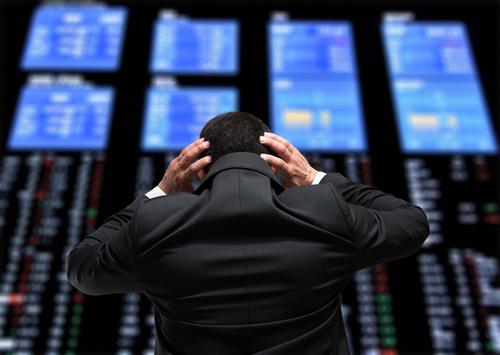Are the Looming Financial Crises in Turkey and Russia an Opening for Crypto?
Though it was expected, the results of US President Donald Trump’s “trade war” with the rest of the world are reaching a head in Turkey and Russia. Earlier in the week Mr. Trump tweeted to demand the release of a pastor from the US—Andrew Brunson—who was arrested in Turkey in the aftermath of a failed coup attempt in 2016. Met with resistance from Ankara, Mr. Trump doubled tariffs on steel and aluminum from Turkey, causing the lira to fall to its lowest point in recent memory versus the dollar at TRY 7.24.
Similar events are transpiring in Russia, with sanctions levied against the country by Mr. Trump stemming from the alleged poisoning of a former Russian spy on British soil. Also relevant is Russia’s ignoring of sanctions on North Korea. A parallel story played out in the currency markets, and the dollar saw its best day against the ruble since November 2016, up 14.60% since the beginning of 2018. Though the US President may think himself justified in his aggressive economic policy, there is no doubt that tariffs haven not been a part of America’s playbook for a long time and will have unforeseen effects.

Primary among the consequences are significant waves in diplomatic relations between nations, each of which stands to lose from the rapidly shifting balance of power between them. While rhetoric is growing more aggressive by the day, the biggest and quietest threat to nations who do not come out on top of the new status quo is purely financial. A recent statement made by President Erdogan refutes this, but it also lent credibility to the idea that there may be an unexpected winner after the dust clears: cryptocurrency.
Crypto’s Edge Comes in Spite, Not as a Solution
In the wake of his country’s rapidly weakening currency, Mr. Erdogan made a statement that many cryptocurrency enthusiasts paid special attention to. Though the purpose of his speech was to announce new retaliatory tariffs against the US, Erdogan stated that “[Turkey] will not give in. We will continue to produce, to increase our export volume and employment rate, to maintain production in our factories, and to walk toward our goals with record growth rates. If you pressure us with the dollar, we will search for other alternatives to carry out our works.”
Alarm bells sounded in the heads of cryptocurrency enthusiasts worldwide after the last sentence where the President described “other alternatives” to the US dollar. Many speculate that these alternatives might include cryptocurrency, especially with the favorable environment that Turkey has nurtured for crypto within its borders. In the last week following the new tariffs, for example, Turkish bitcoin exchange volumes increased significantly as people escaped into comparatively safer assets.
Though Turkish and Russian banks are eager to work with cryptocurrency traders, and many have already set up fiat deposits with domestic crypto exchanges, it’s unlikely that the best opportunity at this juncture is to release a state-backed cryptocurrency. Given the enthusiasm for bitcoin, it doesn’t seem probable that many will answer Erdogan’s call for citizens to fight the latest “operation” against his country by exchanging it alongside their dollars and gold. However, this depends on how closely Erdogan follows the lead of Russia, and also on how confident he is that Turkey’s would-be cryptocurrency would turn out better than, say, Venezuela’s.
The only other country to attempt a national cryptocurrency is Venezuela, with its Petro, but the Petro hasn’t borne any fruit. This is mostly by design, with a confusing paradigm that almost seems intentionally dysfunctional. Venezuelan citizens can’t buy the Petro because its only counter currency is dollars, yet the only way to spend it is on Venezuelan taxes. Few want to follow in this example, even with a more logical formula. Russia certainly won’t, with Vladimir Putin describing recently that cryptocurrency has its own place—and it’s not in the State.
The Real Opportunity for Crypto is Chaos
Speculators are right to determine that the recent global turmoil is an opening for cryptocurrency, however. Unfortunately, the opportunity presented is mostly as a means for capital flight, because for economically turbulent countries like Venezuela and Turkey, more people believe in decentralized digital assets than they do government-backed fiat. The same idea was exemplified in China last year when the country was forced to crack down on bitcoin exchanges and trading because so many people were breaking the country’s $50,000-maximum on investments in non-national assets.
In its current state, cryptocurrency has survived for a decade due to the difficulty with which governments struggle to meddle in decentralized networks, but also due to its surprising utility for global finance. The manifestations of cryptocurrency thus far are exclusively private, however, meaning that investment in them means a lack of investment elsewhere. This is the simultaneous threat and opportunity delivered by cryptocurrency in an unstable economic environment because people have proven themselves willing to trust these trustless markets over other alternatives.
To imagine the opportunity facing cryptocurrency in this regard, it helps to picture an enormous hourglass, full of sand. The world’s printed fiat currencies are slowly spilling into the empty bottom portion of the hourglass, as people slowly begin to invest in cryptocurrency. However, as the upper portion is shaken and jumbled due to mis-aligned economic policy, sanctions, and war, more sands begins to fall. In turn, the ballooning relative value of the sand below makes it even more enticing to escape the upper half of the hourglass.
This is the financial situation in which the world finds itself today. Cryptocurrency, as a largely deflationary asset, is doing well amid disorder. The events in Turkey and Russia exemplify the continuance of this trend, though like any other currency, crypto will also have its moment of reckoning.
